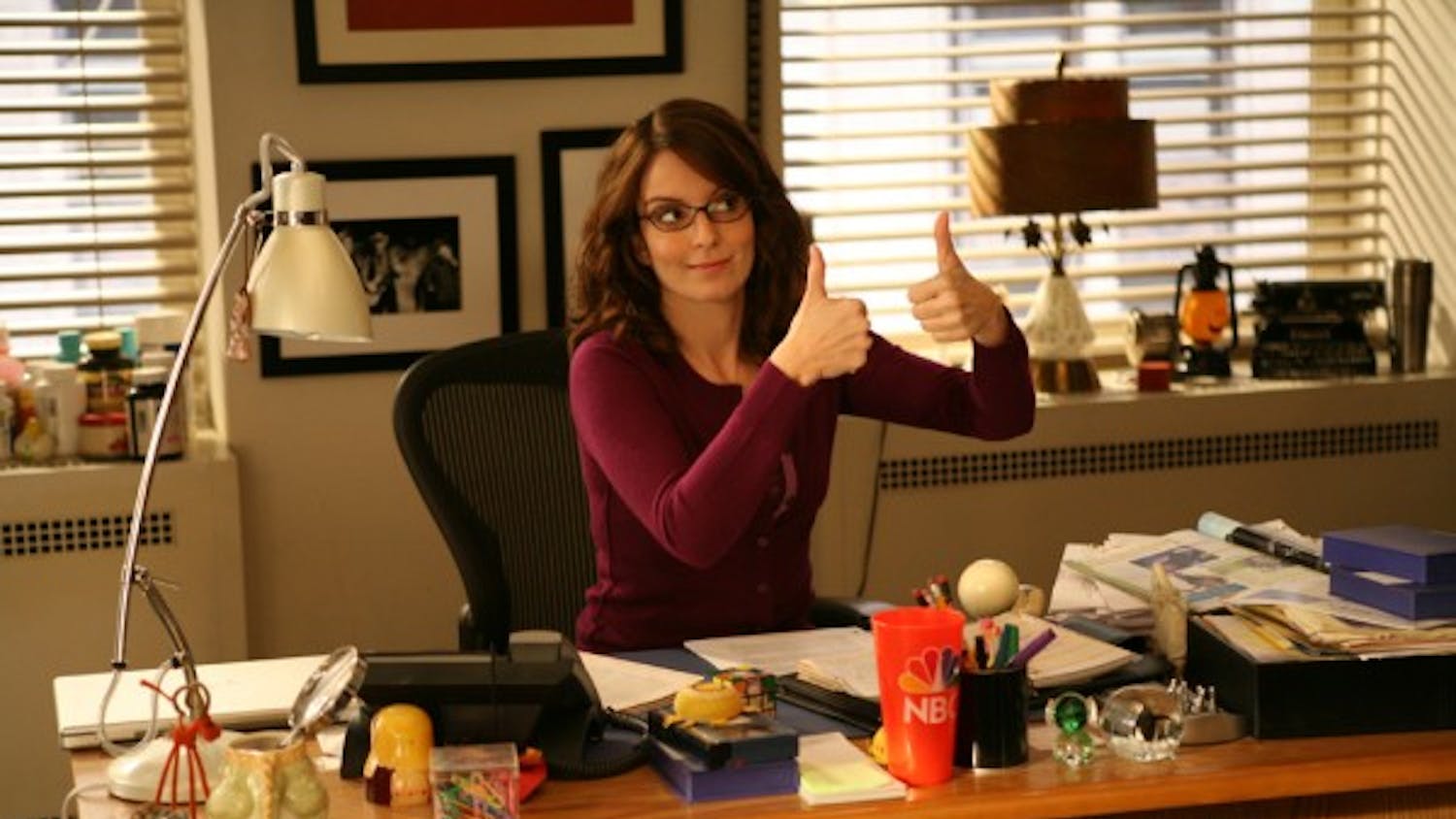Hey. Why aren't you e-mailing us? If anything, the sex@dailycardinal.com inbox should be fuller than normal after spring break. So send in your sex questions (or comments or stories, if you prefer). Kthx.
In the meantime, we're going to wax philosophical (this time of year, we're not waxing any other kind of way) about queer visibility in mainstream culture. If we've lost you already, what we're saying is that we're gonna talk about ""Glee.""
As you may or may not be aware, last week's episode of ""Glee"" featured the openly-gay Kurt getting a passionate smooch from his openly gay mentor, Blaine. There was much buzz, gay and non-gay, about this, and on YouTube Gleeks' posted their joyous reaction to the long (11 seconds!) and long-anticipated liplock.
Well, we hate to rain on the pride parade, but we've got to ask: How much progress does this really signify for queer communities?
Do not get us wrong. We are beyond pro-boys-kissing-on-TV. We like it, we like watching it and we like watching other people watch it. Nonetheless, we're leery of declaring this a ""big moment in every way"", as Sandra Gonzalez proclaimed in Entertainment Weekly.
The number of queer characters (and queer people) on television and in film is undoubtedly at an all-time high. In addition to ""Glee,"" we've seen shows like ""Modern Family"" incorporate gay characters into their storylines. Lady Gaga's ""Born this Way"" is all over the radio. Films like ""The Kids Are All Right"" have generated much publicity and revenue. Openly lesbian women like Ellen DeGeneres and Rachel Maddow are high-profile names. ""These works,"" says UW alum Joe Erbentraut in ""Have We Reached a Post-Gay America?"", ""showcase queer people doing, by and large, ordinary things … these projects all showcase a certain symbiosis or symmetry, even, between gay and straight.""
Visibility is a key part of the acceptance of any social justice movement. When individuals outside the movement begin to see and become outraged by the struggles, when the humanness of marginalized people begins to become undeniable and beautiful, then allies are formed and the movement expands. Thus, we are not complaining about Kurt and Blaine kissing on TV—in fact, we hope they do it more.
But there's a real danger to interpreting this representation as evidence that the queer movement has arrived, that we may lay down our arms in the struggle for LGBT equality. Images like Kurt and Blaine are real and they signal progress, but there is still very much a limit to how queer one can acceptably be in mainstream representations. Both of these men are young and conventionally attractive, and the activities they've engaged in so far would hardly be boundary-pushing if they were a mixed-gender pair.
On the one hand, you can make the legitimate argument that these representations break down stereotypical images of queerness and queer-identified people—we're here, we're queer, we're not all gay minstrelsy á la ""Queer Eye for the Straight Guy.""
On the other hand, we're still only permitted to break down these stereotypes in ways that don't make heteros too uneasy. Rachel Maddow is perhaps a poster-perfect example of this assimilation. Would she (or Ellen) be on television if she rocked a mullet and flannel and had hairy pits? Perhaps—but certainly not on MSNBC.
This is our concern. This diluted or sanitized version of ""gay"" cannot be allowed to become the new stereotype. As these representations liberate, they marginalize and separate. Our transgender and gender nonconforming siblings are carefully photoshopped from these images of ""LGBT people."" Queer people of color and queer people with disabilities are conspicuously absent. Representations of bisexual people are still minimal.
At the end of the aforementioned article, Joe Erbentraut concludes, ""While Lady Gaga's ‘Born This Way', ‘Modern Family' and ‘Glee' may affirm the normalcy and acceptability of queer lives, the sheer fact remains that it's not always easy to live open queer lives."" We don't think a queer soul on the planet would disagree with that statement. Nonetheless, the struggles and discrimination faced by LGBT folks don't continue to exist in spite of our increasing representation in mainstream media; in many ways, they also continue to exist because of our representation in mainstream media.
Progress for some is no progress at all if it comes at the further devaluation of others in our communities. We must remain cognizant of this as we work to move forward together.
E-mail sex@dailycardinal.com with comments and sex questions.




